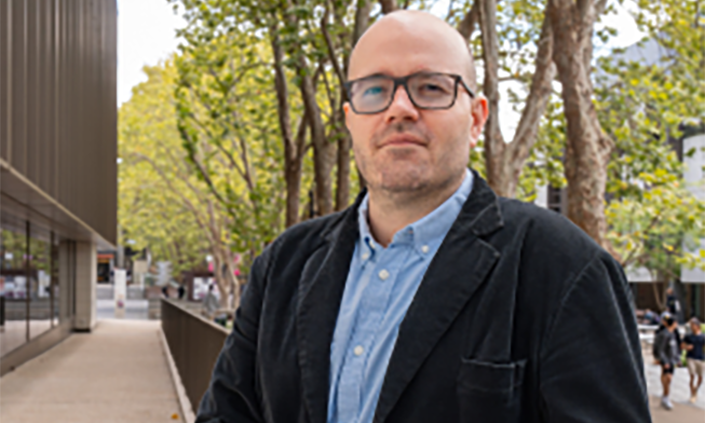Five minutes with... Dr Pierrick Bourrat
In this Q&A we speak with Dr Pierrick Bourrat about his work as an evolutionary biologist and latest project using bee colonies as a case study.

What is your background and what brought you to Macquarie?
I am an evolutionary biologist by background. I completed most of my studies in France. After earning a master’s degree in evolutionary biology, I pursued a second master's in philosophy and relocated to Australia to complete my PhD in philosophy of biology. Following my PhD, I was awarded a Macquarie University Research Fellowship and joined Macquarie in 2017.
How did you originally become interested in your area of research, and what keeps you interested in it?
I have always been fascinated by evolution and its conceptual underpinnings. The evolutionary biologist Theodosius Dobzhansky famously wrote that "Nothing in biology makes sense except in the light of evolution." I think that's what keeps me interested in evolution.
Tell us a bit about your current research and what makes it so important?
I have recently been awarded a grant from the John Templeton Foundation. The project, titled "Cognition all the way up?", will be conducted in collaboration with Professor Andrew Barron, Director of the Macquarie Mind and Intelligence Initiative, and Emeritus Professor Paul Griffiths (University of Sydney). It will examine the connections between the concepts of individuality and agency, using bee colonies among other examples. Specifically, it will investigate when a new individual emerges in evolution, and whether the emergence of a new level of individuality is equivalent to the emergence of a new level of agency.
What is something you have recently accomplished?
I recently held a conference in December 2024 at Macquarie University that marked the end of another project and the launch of this new project with several distinguished evolutionary biologists and philosophers. More information can be found here.
What do people always ask you when they find out what you do for a living?
Most people have a very particular picture of what a philosopher does, and when I mention that I am a philosopher of science or biology, they are quite intrigued and often ask me to explain what this means, since philosophy and biology or science sound kind of antinomic.
What is on your agenda for 2025?
I aim to strengthen connections between philosophy and biology at Macquarie and beyond. One project I'm particularly passionate about is the Sino-Australian Philosophy of Life Science Network (SAPoLSN), which I co-founded. This network, as its name suggests, is a collaboration between several prestigious universities in China (particularly Peking University and Fudan University) and Macquarie, aimed at advancing philosophy of life science in China. We host an annual international summer school and workshop, and we plan to expand our activities in the coming years.